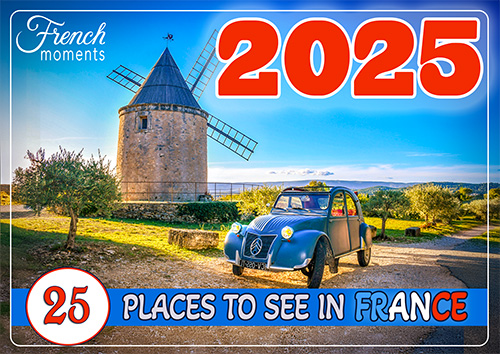Le bon roi Dagobert is a French parody song from the second half of the 18th century that still greatly amuses children.
The story of the song
This song is said to be inspired by a much older hunting tune, La Fanfare du grand cerf.
The verses were written over time. Some of the lyrics date from the French Revolution.
Two historical figures
The parody song evokes two historical figures:
- the Merovingian king Dagobert I (c. 600-639), and
- his main adviser, Saint Eloi (c. 588-660), bishop of Noyon.
Dagobert I
Dagobert was born in 600. In 623, his father appointed him king of Austrasia, as the Austrasian throne had been unoccupied since the death of Brunehaut and the people were demanding a king.
Upon the death of his father, he attempted to rule the entire kingdom. He left Metz and settled in Paris, which he wanted to make his capital.
He turned Neustria and Burgundy into provinces and traveled around them constantly, striving for justice and listening to everyone's requests while judging fairly, disregarding gifts and the importance of the person.

Dagobert I by Emile Signol
Although he did not win any major victories, Dagobert, who was more of a politician than a warrior, preserved and strengthened the peace of his kingdom. He was able to assemble competent and efficient advisors, such as:
Didier
Didier became bishop of Cahors in order to face the Visigothic danger.
Saint Ouen
Ouen, whose real name was Dadon, was born near Soissons and became head of the Chancellery. When Dagobert died in 639, Ouen, who was to become Saint Ouen, was consecrated bishop of Rouen.
He is remembered in many churches in Normandy that bear his name, such as the Saint-Ouen abbey in Rouen.

Chevet of Saint Ouen Abbey Church, Rouen © French Moments
Saint Eloi
Eloi, whom his parents called Elligius - the Chosen One, was born near Limoges in 588. He was such a skilled goldsmith that he was sent to the king's court. An intimate of Dagobert, he acted as an ambassador, notably to the Breton king Judicael, and then founded monasteries. He was appointed bishop of Noyon in 641, after Dagobert's death.
![Noyon Cathedral © Rolf Kranz licence [CC BY-SA 4.0] from Wikimedia Commons Noyon Cathedral © Rolf Kranz licence [CC BY-SA 4.0] from Wikimedia Commons](http://frenchmoments.eu/wp-content/uploads/2023/02/Noyon-Cathedral-©-Rolf-Kranz-licence-CC-BY-SA-4.0-from-Wikimedia-Commons.jpg)
Noyon Cathedral © Rolf Kranz licence [CC BY-SA 4.0] from Wikimedia Commons
Mocking King Louis XVI
This song, written to a dance tune called Fanfare du Cerf, is not intended to transcribe a historical truth.
It was rather intended to ridicule King Louis XVI, known among other things for his distracted personality (and for being nonchalant and indecisive), through Dagobert I, an ancient and little known king.

Louis XVI by Antoine-François Callet in 1779
By referring to a distant king, clever authors put themselves beyond the reach of censors!
Two elements show that the song is original to 1787 (and not in Dagobert's time).
- Eloi was not yet a saint in Dagobert's time. He would become one after the death of the king.
- Dagobert did not wear culottes (breeches). There were no such things yet in the 7th century.
Sans-culottes: without underpants?
The term "Sans-culottes" was coined in 1789 to mockingly refer to popular demonstrators who chose to wear striped trousers as opposed to the breeches which were a symbol of the Ancien Régime aristocracy.
It refers to the lower-class status: culottes were the fashionable silk knee-breeches of the 18th-century nobility and bourgeoisie, and the working class wore long trousers, instead.

A "Sans-Culottes" with striped trousers in 1794
Le bon roi Dagobert
Lyrics, music, free download... let's learn more about the popular song:

The lyrics in French
The original song of Le bon roi Dagobert has 24 verses (read them all here). Here are the 8 most popular verses:
Couplet 1
Le bon roi Dagobert
Avait sa culotte à l'envers*.
Le grand saint Éloi
Lui dit : « Ô mon roi !
Votre Majesté
Est mal culottée.
C'est vrai, lui dit le roi,
Je vais la remettre à l'endroit. »
Couplet 2
Le bon roi Dagobert
Chassait dans la plaine d'Anvers.
Le grand saint Éloi
Lui dit : « Ô mon roi !
Votre Majesté
Est bien essoufflée.
C'est vrai, lui dit le roi,
Un lapin courait après moi. »
Couplet 3
Le bon roi Dagobert
Voulait s'embarquer sur la mer.
Le grand saint Éloi
Lui dit : « Ô mon roi !
Votre Majesté
Se fera noyer.
C'est vrai, lui dit le roi,
On pourra crier : le roi boit ! »
Couplet 4
Le bon roi Dagobert
Mangeait en glouton du dessert.
Le grand saint Éloi
Lui dit : « Ô mon roi !
Vous êtes gourmand,
Ne mangez pas tant.
C'est vrai, lui dit le roi,
Je ne le suis pas tant que toi. »
Couplet 5
Le bon roi Dagobert
Avait un grand sabre de fer.
Le grand saint Éloi
Lui dit : « Ô mon roi !
Votre Majesté
Pourrait se blesser.
C'est vrai, lui dit le roi,
Qu'on me donne un sabre de bois. »
Couplet 6
Le bon roi Dagobert
Se battait à tort, à travers.
Le grand saint Éloi
Lui dit : « Ô mon roi !
Votre Majesté
Se fera tuer.
C'est vrai, lui dit le roi,
Alors, mets-toi bien vite devant moi. »
Couplet 7
Le bon roi Dagobert
Craignait fort d'aller en enfer
Le grand saint Eloi
Lui dit : « Ô mon roi !
Je crois bien,
Ma foi qu'vous irez tout droit
C'est vrai lui dit le roi,
Ne peux-tu pas prier pour moi ? »
Couplet 8
Quand Dagobert mourut,
Le diable aussitôt accourut.
Le grand saint Éloi
Lui dit : « Ô mon roi !
Satan va passer,
Faut vous confesser.
Hélas ! lui dit le roi,
Ne pourrais-tu mourir pour moi ? »
*Verse 1: Another version has:
a mis sa culotte à l'envers
Translation of the lyrics into English
Here is an approximative translation into English:
Verse 1
The good King Dagobert
Had his underpants on backwards.
The great Saint Eloi
Said to him: O my king!
Your Majesty
Is badly dressed.
It's true, said the king,
I'll put it right.
Verse 2
The good King Dagobert
Was hunting on the plain of Antwerp.
The great Saint Eloi
Said to him: O my king!
Your Majesty
Is quite out of breath.
It is true, said the king,
A rabbit was running after me.
Verse 3
The good King Dagobert
Wanted to set sail on the sea.
The great Saint Eloi
Said to him: O my king!
Your Majesty
Will be drowned.
It is true, said the king,
People may shout: The king drinks!
Verse 4
The good King Dagobert
Ate like a glutton for dessert.
The great Saint Eloi
Said to him: O my king!
You are greedy,
Don't eat so much.
It is true, said the king,
I'm not as greedy as you are.
Verse 5
The good King Dagobert
Had a great iron sword.
The great Saint Eloi
Said to him: O my king!
Your Majesty
Could hurt himself.
That is true, said the king,
Give me a wooden sword.
Verse 6
The good King Dagobert
Fought like crazy.
The great Saint Eloi
Said to him: O my king!
Your Majesty
Will be killed.
It is true, said the king,
Then stand before me quickly.
Verse 7
The good King Dagobert
Was afraid of going to hell
The great Saint Eloi
Said to him: O my king!
I think so,
My goodness that you will go straight
The king said to him, It is true,
Can you not pray for me?
Verse 8
When Dagobert died,
The devil came at once.
The great Saint Eloi
Said to him: O my king!
Satan is going to pass,
You must confess.
Alas! said the king,
Could you not die for me?


